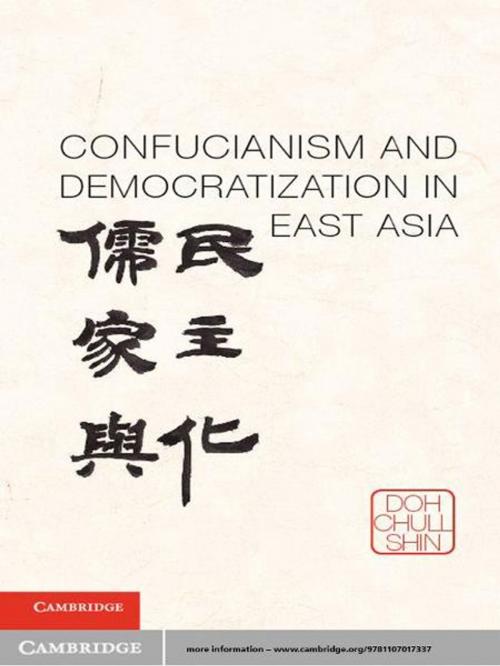Confucianism and Democratization in East Asia
Nonfiction, Religion & Spirituality, Philosophy, Social & Cultural Studies, Political Science, History| Author: | Doh Chull Shin | ISBN: | 9781139210157 |
| Publisher: | Cambridge University Press | Publication: | December 30, 2011 |
| Imprint: | Cambridge University Press | Language: | English |
| Author: | Doh Chull Shin |
| ISBN: | 9781139210157 |
| Publisher: | Cambridge University Press |
| Publication: | December 30, 2011 |
| Imprint: | Cambridge University Press |
| Language: | English |
For decades, scholars and politicians have vigorously debated whether Confucianism is compatible with democracy, yet little is known about how it affects the process of democratization in East Asia. In this book, Doh Chull Shin examines the prevalence of core Confucian legacies and their impacts on civic and political orientations in six Confucian countries: China, Japan, South Korea, Singapore, Taiwan, and Vietnam. Analyses of the Asian Barometer and World Values surveys reveal that popular attachment to Confucian legacies has mixed results on democratic demand. While Confucian political legacies encourage demand for a non-liberal democratic government that prioritizes the economic welfare of the community over the freedom of individual citizens, its social legacies promote interpersonal trust and tolerance, which are critical components of democratic civic life. Thus, the author argues that citizens of historically Confucian Asia have an opportunity to combine the best of Confucian ideals and democratic principles in a novel, particularly East Asian brand of democracy.
For decades, scholars and politicians have vigorously debated whether Confucianism is compatible with democracy, yet little is known about how it affects the process of democratization in East Asia. In this book, Doh Chull Shin examines the prevalence of core Confucian legacies and their impacts on civic and political orientations in six Confucian countries: China, Japan, South Korea, Singapore, Taiwan, and Vietnam. Analyses of the Asian Barometer and World Values surveys reveal that popular attachment to Confucian legacies has mixed results on democratic demand. While Confucian political legacies encourage demand for a non-liberal democratic government that prioritizes the economic welfare of the community over the freedom of individual citizens, its social legacies promote interpersonal trust and tolerance, which are critical components of democratic civic life. Thus, the author argues that citizens of historically Confucian Asia have an opportunity to combine the best of Confucian ideals and democratic principles in a novel, particularly East Asian brand of democracy.















